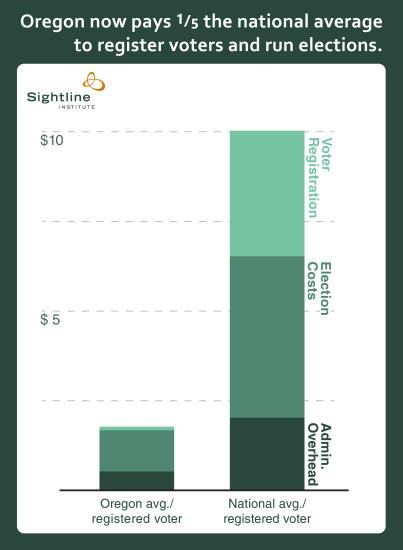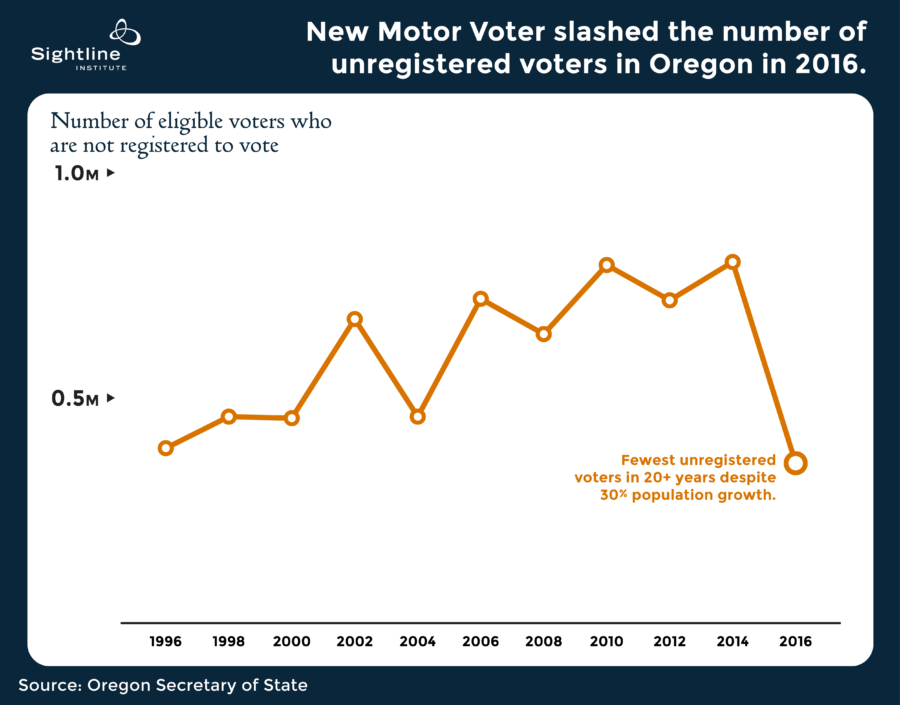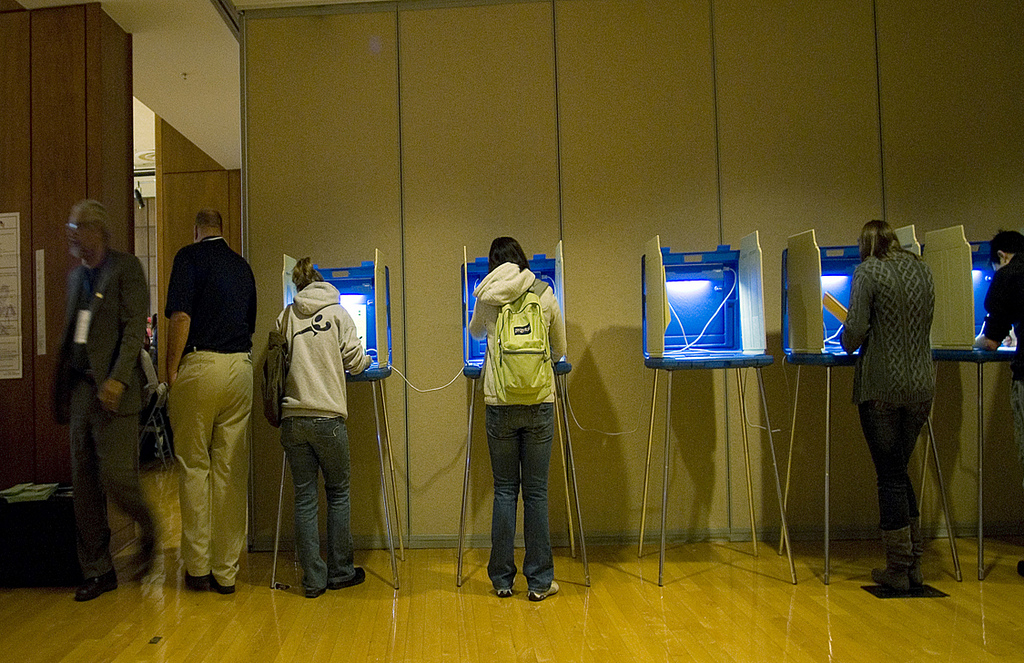There is a war going on, and Oregon is ground zero. Some states, mostly in the South and Midwest, are restricting voter rights through Voter ID laws and barriers to voter registration. But the Pacific Northwest is defending rights. In a democracy, honoring every citizen’s vote is the right thing to do. Oregon proves it is also the cost-conscious thing to do.
Oregon is a national leader in striking down the barriers to voting: the Beaver State enables citizens to register online, mails ballots to all registered voters, and now will digitally transfer eligible voters’ information from the Department of Motor Vehicles (DMV) to the voter rolls. But even in Oregon, every single Republican and one Democrat voted against the new motor voter law. House Republican Leader Carl Wilson of Grants Pass explained that the law would “cost a broke county $7,800 in the first year. That is money we don’t have.” Never mind that the cost of honoring Josephine County’s citizens’ right to vote adds an infinitesimal 0.009 percent to the county’s $84 million budget.
If this war were really about how much money states and counties spend on voting, voting rights would be winning across the country. For all its efforts to empower voters, Oregon gets a real bargain on elections. Other states could too.

Honoring citizens’ right to vote by running the state and county administrations that register voters; keeping the voter rolls updated and accurate; distributing, collecting, and tallying ballots—add up the costs of all those activities and divide by the number of registered voters in Oregon, and it comes to less than $2 per registered voter per election.
Other states average around $10 per registered voter per election.
By erecting or maintaining barriers to voting, other states pay five times as much as Oregon.
Why are Oregon’s costs so much lower than the national average?







